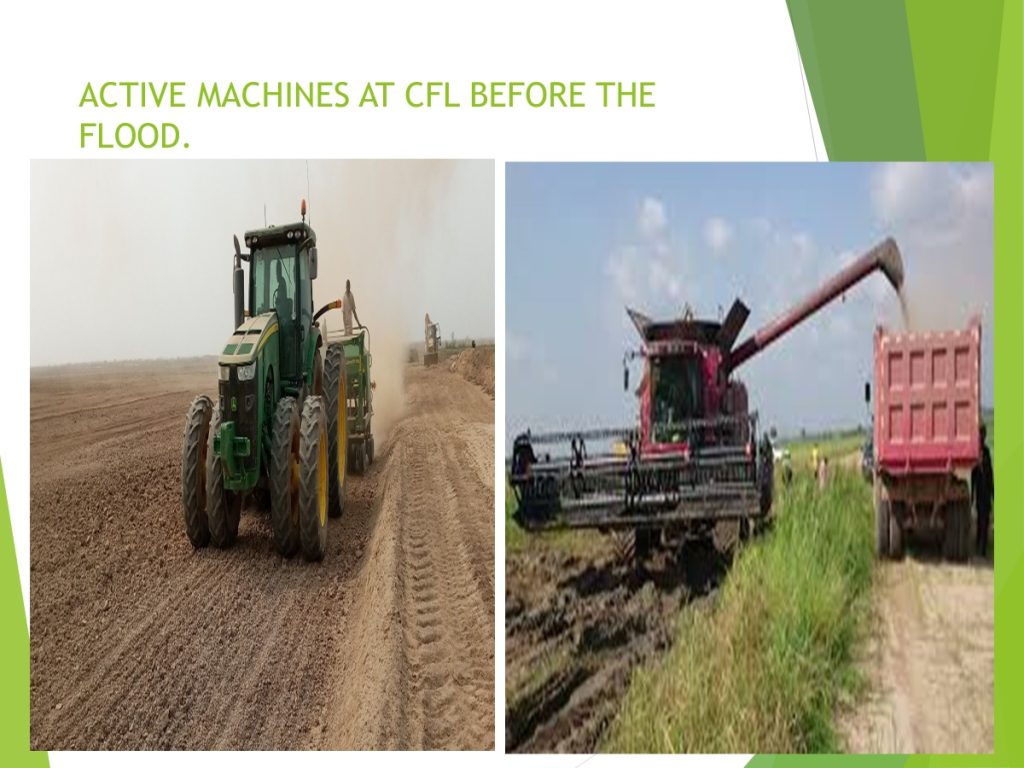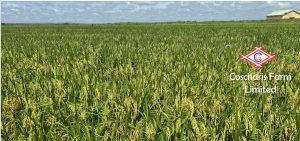COSCHARIS FARM’S BLOCKCHAIN PROGRAM: TRANSFORMING FARMING ACCESSIBILITY IN NIGERIA BY CHINEDU NSOFOR


In a groundbreaking move to modernize agricultural practices in Nigeria, Coscharis Farms, a subsidiary of the Coscharis Group, has introduced a revolutionary blockchain farming program. Located in Anaku village within the Ayamelum Local Government Area of Anambra State, Coscharis Farms is harnessing blockchain technology to create opportunities for local farmers by providing access to 2,500 hectares of land, state-of-the-art equipment, and advanced operational facilities.
Coscharis Farms, established under the Coscharis Group by Dr. Cosmos Maduka, is renowned for its innovative approach to sustainable farming and agricultural technology. The blockchain farming program is the latest initiative aimed at transforming the agricultural sector by offering secure, structured opportunities for local farmers who may not have land or access to modern farming techniques.
The Vision Behind the Blockchain Farming Program
Coscharis Farms has developed its blockchain farming program to address challenges that limit small- to medium-scale farmers, including lack of land access, limited financing, and the scarcity of mechanized farming options. Through the program, farmers can lease parcels of land, sign an economics of production (EOP) agreement, and gain access to advanced machinery and equipment, crop protection solutions, and high-quality seeds. By using blockchain technology, Coscharis Farms ensures transparency and security in contractual agreements with farmers, fostering a new level of trust and reliability in the sector.
The vision for the blockchain farming program aligns with Coscharis Farms’ broader goals to integrate advanced agricultural technologies and empower local farmers. Blockchain technology in this context serves as a backbone for secure record-keeping, eliminating inefficiencies, and ensuring both parties—Coscharis Farms and the farmers—uphold their commitments.
Chinedu Okere, Managing Director of Coscharis Farms, explained, “Our company encompasses three key operational units: a 2,500-hectare farmland, a milling plant with 40,000-metric-ton capacity, and a 25,000-metric-ton capacity silo. Situated within the floodplain of the River Niger tributaries, this expansive agricultural area provides ideal conditions for rice farming and other staple crops.”
“Farmers entering the program are granted access to Coscharis Farms’ suite of agricultural services. These services include land preparation processes such as plong, harrowing, and ridging, all executed by highly advanced machinery. To provide crop protection, Coscharis Farms has established partnerships with major chemical manufacturers, who supply necessary crop protection chemicals to ensure optimal yields. Drone services are also available for effective and efficient application of these chemicals, demonstrating Coscharis Farms’ commitment to adopting cutting-edge technologies to boost productivity,” Okere added.
Partnership Opportunities and Cost-Sharing Model
To maintain efficiency and cost-effectiveness, Coscharis Farms has implemented a cost-sharing model that distributes expenses among the farmers based on the EOP agreement. The EOP agreement covers all costs, from land leasing and seed distribution to equipment and crop protection services, making it affordable for farmers to participate. This cost-sharing model provides significant benefits, allowing even small-scale farmers to participate in commercial farming without bearing the full financial burden of owning machinery or sourcing fertilizers independently.
Moreover, Coscharis Farms collaborates with specialized mechanization service providers who supply additional support for operations when necessary. This flexible system allows Coscharis Farms to scale production efficiently during peak periods or for specific needs while also ensuring that resources are maximized and expenses minimized.
A Tech-Driven Boost to Crop Quality and Yield
Beyond providing access to land, Coscharis Farms’ blockchain farming program is designed to enhance the quality and quantity of yields through innovative mechanization and data-driven decision-making. The program integrates data analytics and monitoring systems to track crop growth, soil quality, and harvest timing. Coscharis Farms’ use of drones to monitor crop health from above provides farmers with a high-tech advantage, allowing early detection of any issues that could compromise crop quality.
This commitment to high-quality production extends into the Coscharis milling plant. The plant has a 40,000-metric-ton processing capacity and specializes in processing Coscharis Rice, a brand that has quickly gained popularity in Anambra State and beyond. Despite the demand for Coscharis Rice far exceeding the available supply, the high processing standards ensure that the quality remains consistent and competitive in Nigeria’s market.
Resilience Strategies Amid Climate Challenges
Located within the floodplain of the River Niger tributaries, Coscharis Farms faces a unique set of environmental challenges, particularly due to annual flooding. However, Coscharis Farms has invested significantly in a flood defense system that includes a 23.5-meter-high dyke designed to protect farmland during peak flood seasons. Despite occasional overflow, the dyke has proved effective in safeguarding crops and ensuring the continuity of farming operations.
In addition, Coscharis Farms works closely with federal agencies to monitor flood patterns and adapt planting and harvesting schedules accordingly. By aligning their crop calendar with weather projections, Coscharis Farms ensures that harvests are completed before the flooding begins, minimizing potential crop loss. These proactive measures are part of Coscharis Farms’ broader resilience strategy, ensuring that climate challenges do not disrupt the steady supply of high-quality products to the market.
Empowering Local Economies and Agriculture with Blockchain
The impact of the blockchain farming program extends beyond farming. Coscharis Farms has created job opportunities for locals in areas such as equipment handling, drone operation, and agricultural extension services. This initiative is a crucial step in addressing unemployment and improving economic outcomes for local communities.
Blockchain technology plays a central role by securely recording all transactions, from lease agreements to crop yields, providing traceability and enhancing transparency. This system empowers farmers to take control of their operations, encouraging more people to view agriculture as a viable career option and attract a new generation of tech-savvy farmers who are eager to incorporate modern practices into their work.
The Future of Farming in Nigeria with Coscharis Farms
Coscharis Farms’ blockchain farming program signifies a promising future for agriculture in Nigeria, particularly in regions facing land scarcity and financial limitations. By prioritizing accessibility, transparency, and innovation, Coscharis Farms is helping transform the agricultural landscape, one farmer at a time.
Through this program, Coscharis Farms aims to demonstrate the potential of technology-driven farming in Africa, offering a model that could be replicated throughout the continent. With ambitious plans to expand the program and incorporate even more advanced technology, Coscharis Farms is committed to leading the way in sustainable, inclusive farming for years to come.
The blockchain farming program is more than an agricultural project—it’s a testament to the power of innovation and collaboration to drive progress in Nigeria’s food industry, ensuring a brighter, more food-secure future for the country.










